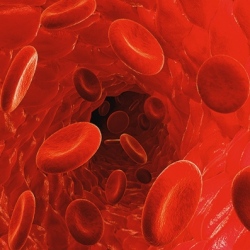
The human immune system is poised to spring into action at the first sign of a foreign invader, but it often fails to eliminate tumors that arise from the body’s own cells. Orchestrating a successful immune attack against tumors has proven difficult so far, but a new study suggests that immune attack against tumors could be improved with cancer immunotherapy.
This involves simultaneously activating both arms of the immune system with antibodies (which activate the innate immune system) and stimulating T cells (which form the backbone of the adaptive immune system). By combining these approaches, the MIT team was able to halt the growth of a very aggressive form of melanoma in mice.
“An anti-tumor antibody can improve adoptive T-cell therapy to a surprising extent,” says Dane Wittrup, the Carbon P. Dubbs Professor in Chemical Engineering at MIT. “These two different parts of the immune therapy are interdependent and synergistic.”
Wittrup, an associate director of MIT’s Koch Institute for Integrative Cancer Research and also a faculty member in the Department of Biological Engineering, is the senior author of a paper describing the work this week in the journal Cancer Cell.
Antibody drugs for cancer, which include rituximab and Herceptin, are believed to work by binding to cancer proteins and blocking the signals that tell cancer cells to divide uncontrollably. They may also draw the attention of cells belonging to the innate immune system, such as natural killer cells, which can destroy tumor cells.
Adoptive T cell therapy, on the other hand, enlists the body’s T cells to attack tumors. Billions of T cells flow through the average person’s bloodstream at any given time, each specialized to recognize different molecules.
The weak point with T cells is that many tumor proteins do not provoke T cells to attack, so T cells must be removed from the patient and programmed to attack a specific tumor molecule. Timing is key to triggering both immune responses simultaneously
Instead of relying on that complicated process, Wittrup and his colleagues discovered that they could generate both types of immune responses, antibodies and T cells, while they were experimenting with improving antibody drug performance with a signaling molecule called IL-2, which helps boost immune responses.
Scientists have tried this strategy before, and about a dozen such therapies have gone through phase I clinical trials. However, most of these efforts failed, even though the antibody-IL-2 combination usually works very well against cancer cells grown in a lab dish.
